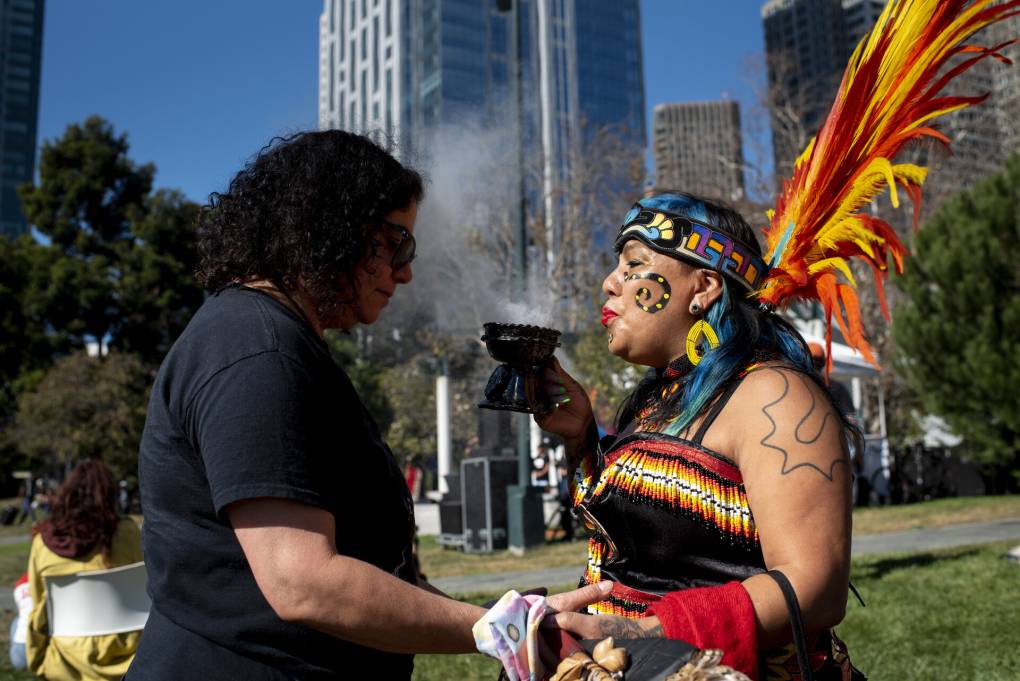Hundreds gathered in San Francisco’s Yerba Buena Gardens on Monday to celebrate Indigenous Peoples Day with an afternoon of performance, community and creative expression.
“Today is a celebration of our continued resistance, our solidarity with Indigenous people all over the world,” said Morning Star Gali, a member of the Ajumawi band of the Pit River Tribe, project director of Restoring Justice for Indigenous Peoples, and emcee for Monday’s event.
“It’s about our ongoing resistance to colonialism,” said Gali.
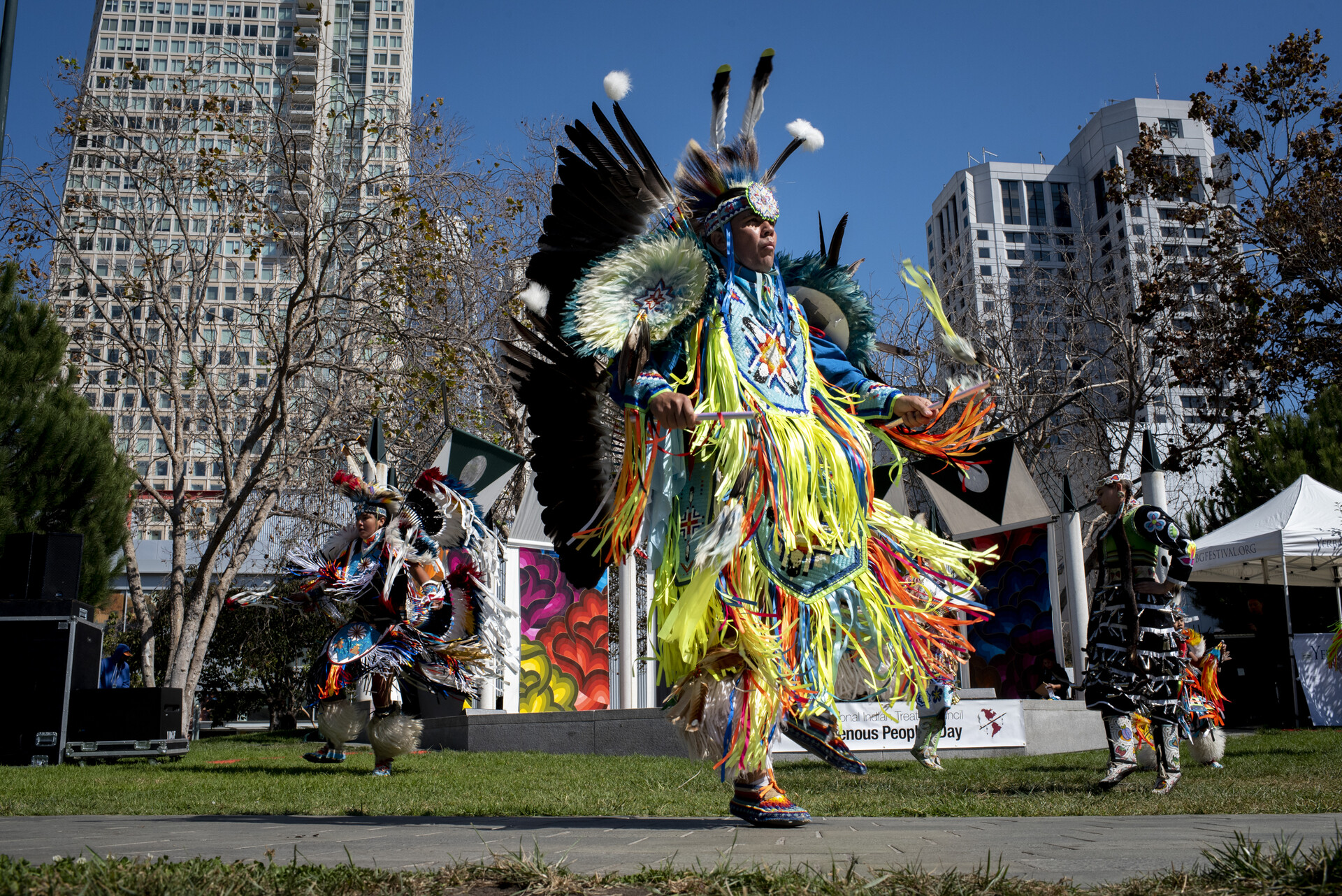
The event in downtown San Francisco — the fourth annual event in Yerba Buena Gardens to mark Indigenous Peoples Day — saw a gathering of Indigenous creatives from around the Bay Area and the state, including artists, musicians, performers and vendors.
“It’s really beautiful … to see Indigenous people celebrated in this way,” said Gali.
The free event featured performers including DJ Cutz, the Round Valley Dancers, the Cody Blackbird Band, Big Valley Pomo youth dancers, and All Nations Singers and Powwow Dancers.
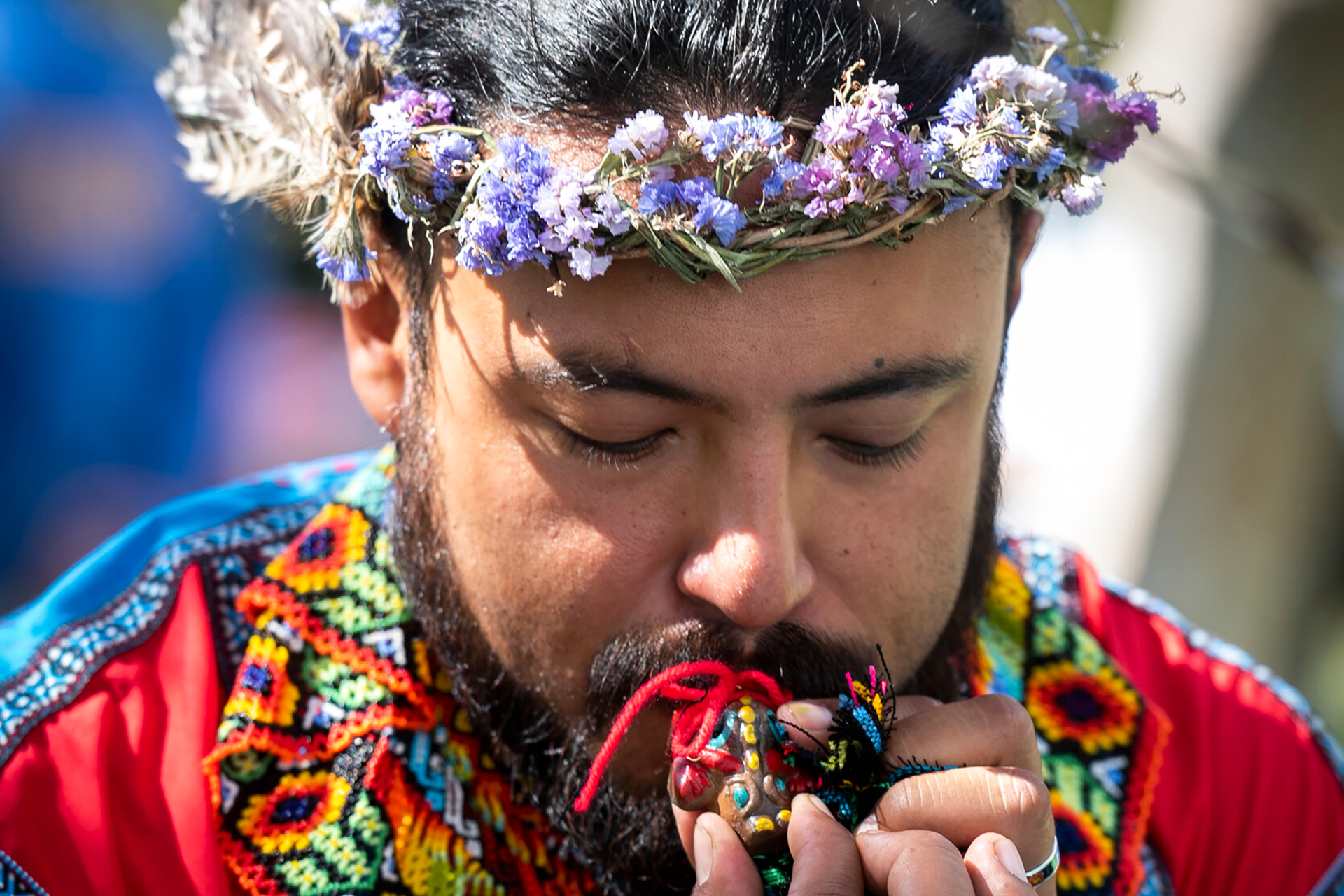
“For me, it’s a way to breathe and live our culture,” said Douglas Scholfield, a member of the Wintu and Pit River Tribes. Scholfield performed an intertribal dance with the Thundering Moccasins Dance Company.
Also in attendance was Lidia Doniz of San José, a member of the Teocalli dance group, which performs Mexica traditional dance. Against a backdrop of Yerba Buena Gardens’ greenery and downtown San Francisco architecture, Doniz also shared copal medicine with attendees and fellow performers.
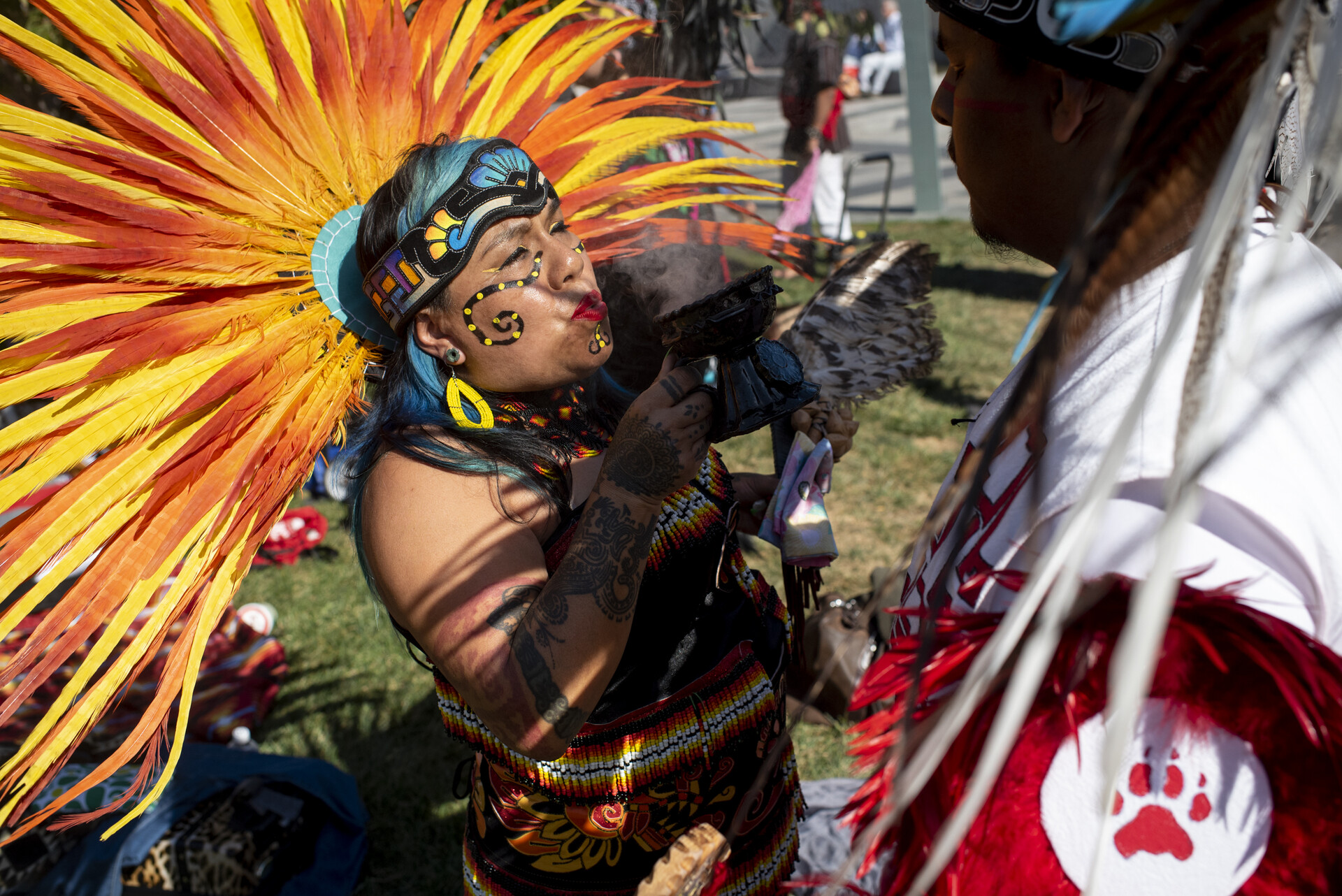
Copal, a Mexican tree sap, is intended to cleanse, bless and direct prayers and thoughts where they need to go, Doniz explained. “It connects us to our ancestors,” Doniz said.
Monday’s event in downtown San Francisco was preceded by the traditional sunrise gathering on Alcatraz Island, commemorating — as the organizing body the International Indian Treaty Council put it — “530 years of Indigenous resistance, cultural resiliency and survival in the Americas.”
This event will be followed by the annual November sunrise gathering on Alcatraz Island on Thanksgiving morning, known to many as Unthanksgiving.
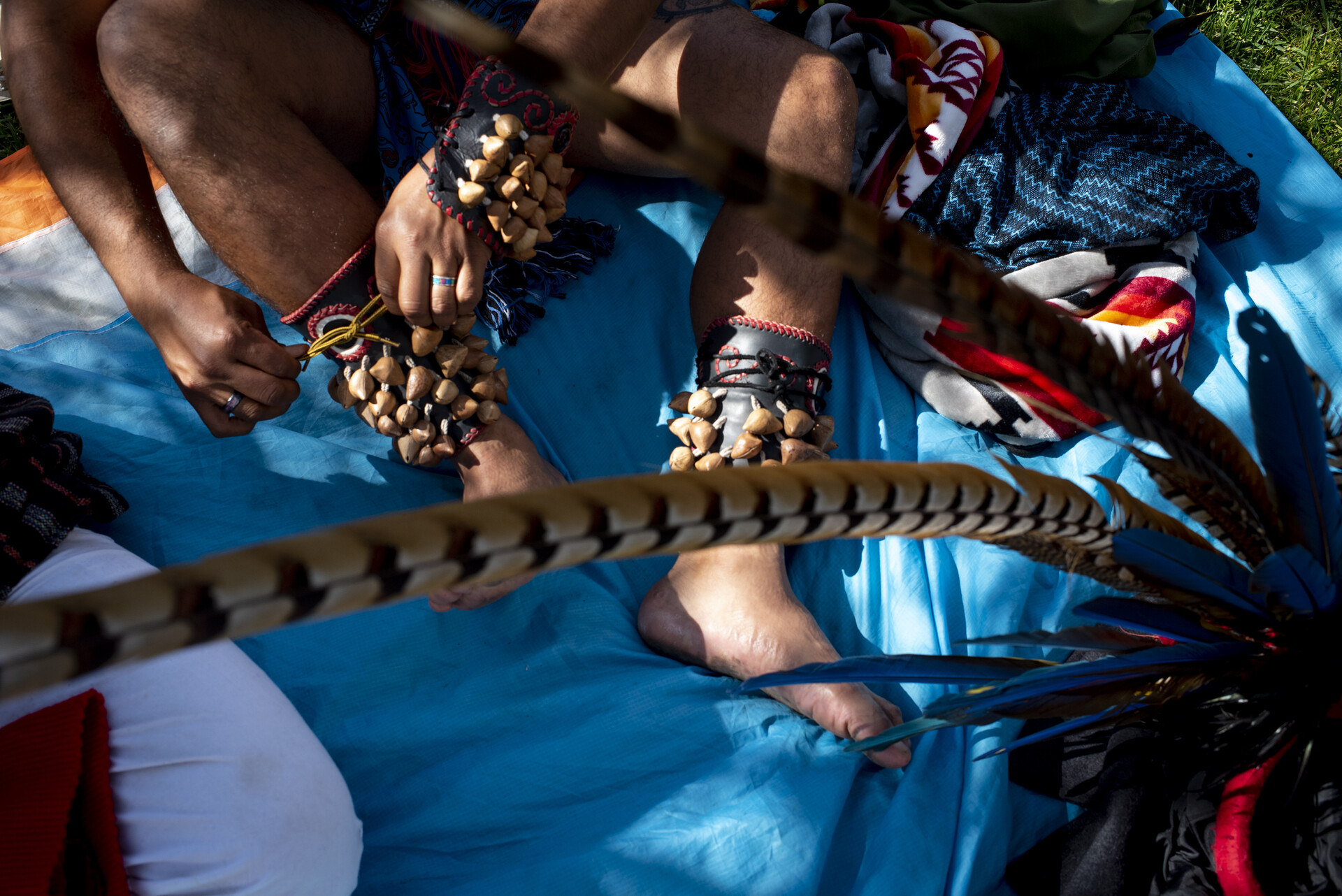
According to the United States census, in 2020 there were just over 1.4 million “American Indian and Alaska Native alone or in combination” people in California, representing 3.6% of the population.
Indigenous Peoples Day has been celebrated in the Bay Area since 1992, when Berkeley became the first city in the U.S. to officially celebrate the holiday. The day was intended to be in protest of Columbus Day, which remains the official federal holiday. The state of California has formally recognized Indigenous Peoples Day since 2019. (Read more about the origins of Indigenous Peoples Day in the Bay Area here.)
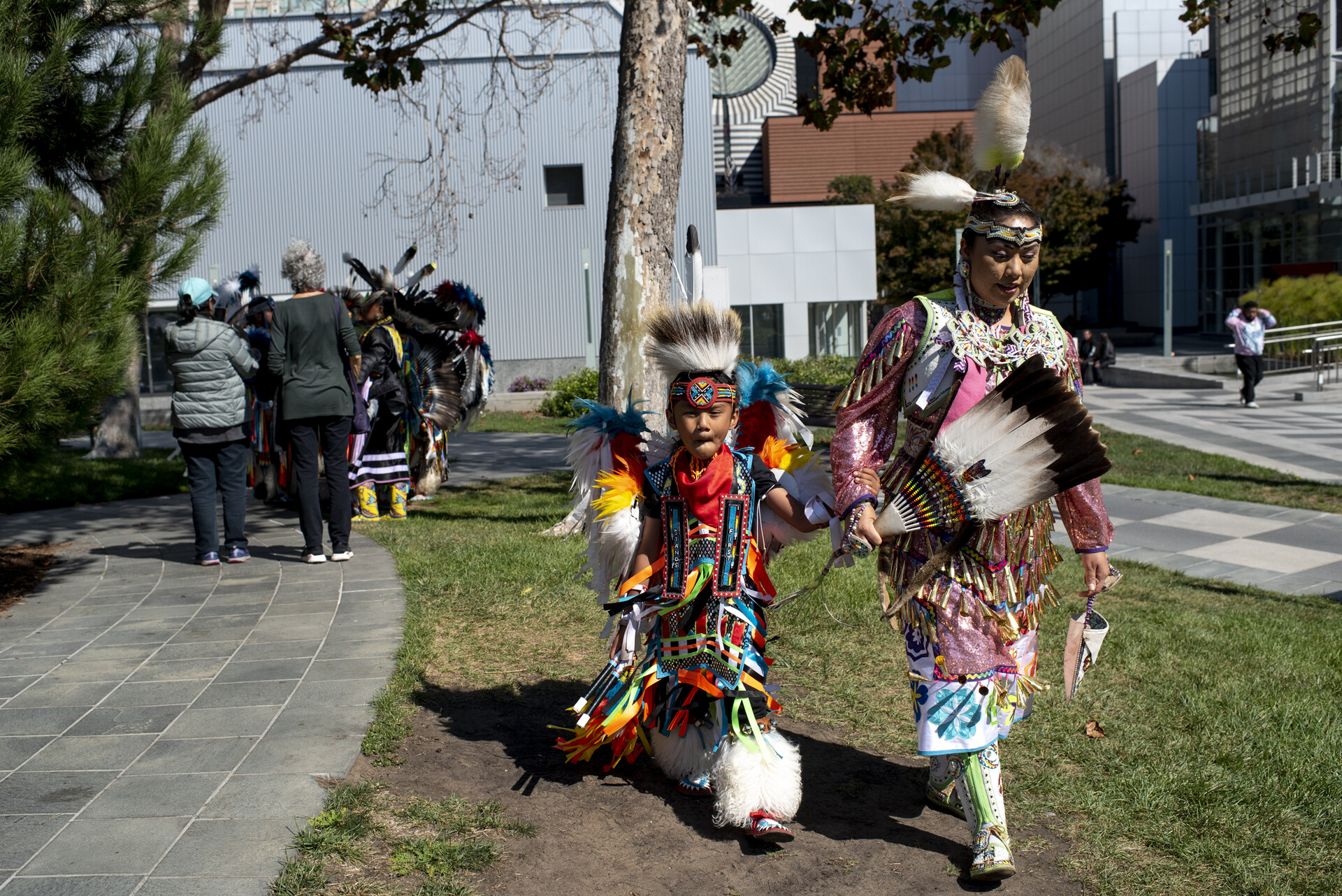
This year also marks the 53rd anniversary of the loss of San Francisco’s first American Indian Center, which burned down on this day, October 10, in 1969. That event has often been credited with contributing to the Alcatraz Movement: It spurred Indigenous activists to seek a new gathering place, and to establish a new American Indian Center and Native American school on Alcatraz Island.
On Sunday, the day before Indigenous Peoples Day, it was announced that five California tribes will reclaim their right to manage coastal land significant to their history under a first-in-the-nation program backed with $3.6 million in state money.
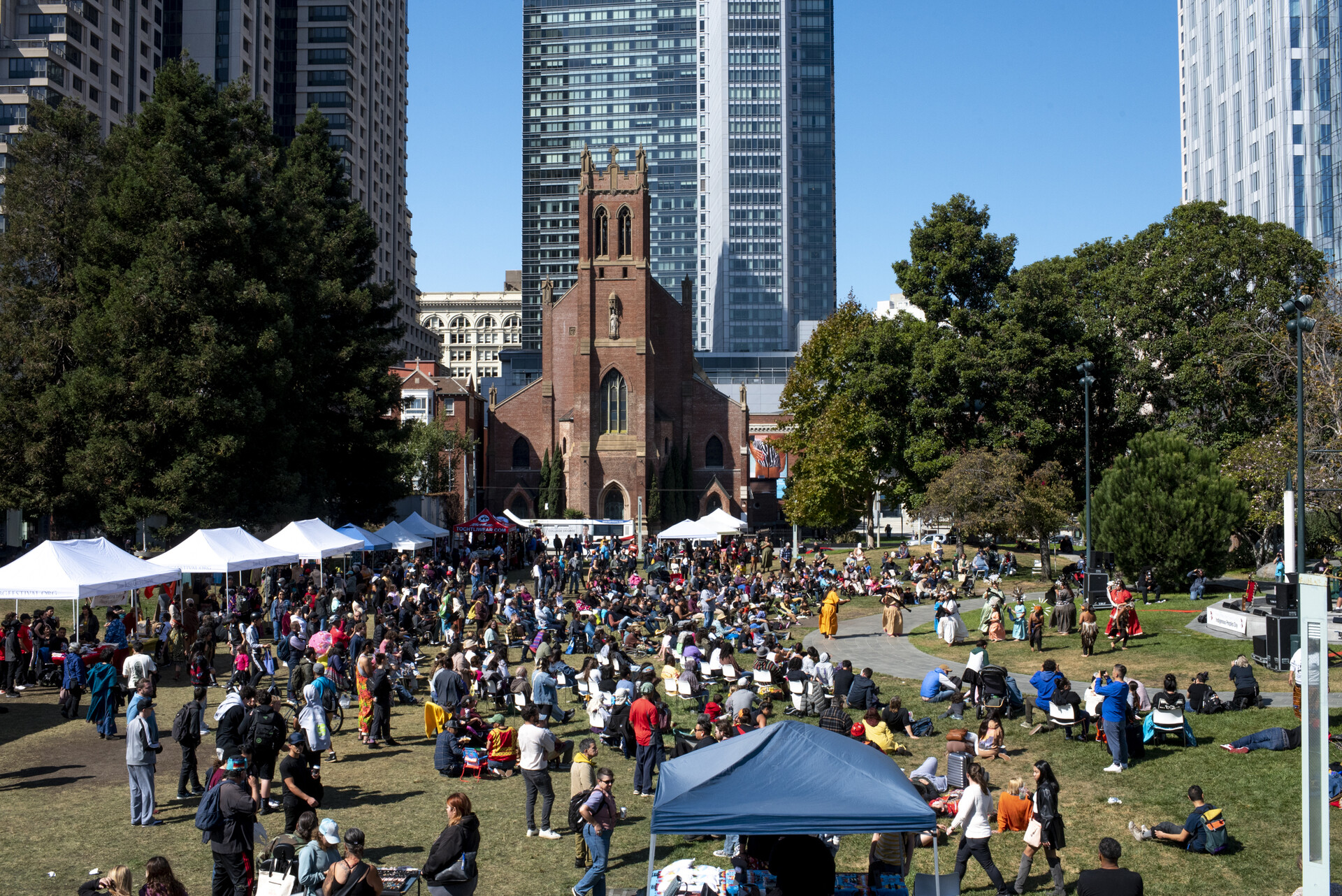
The tribes will rely on their traditional knowledge to protect more than 200 miles of coastline in the state, as climate change and human activity have affected the vast area.
Some of the tribes’ work will include monitoring salmon after the removal of a century-old defunct dam in the redwood forests of the Santa Cruz Mountains and testing for toxins in shellfish, while also educating future generations on traditional practices.
The partnership comes three years after Democratic Gov. Gavin Newsom apologized for the state’s previous violence and mistreatment against Indigenous peoples. Newsom said the state should allow for more co-management of tribes’ ancestral lands.
In September, the City of Oakland announced plans to return portions of Joaquin Miller Park to the East Bay Ohlone. This action, if formally approved in November, would make Oakland the first city in the state ever to return part of a municipal park to Native stewardship, as part of the Indigenous Land Back movement.
This story contains reporting by The Associated Press.
